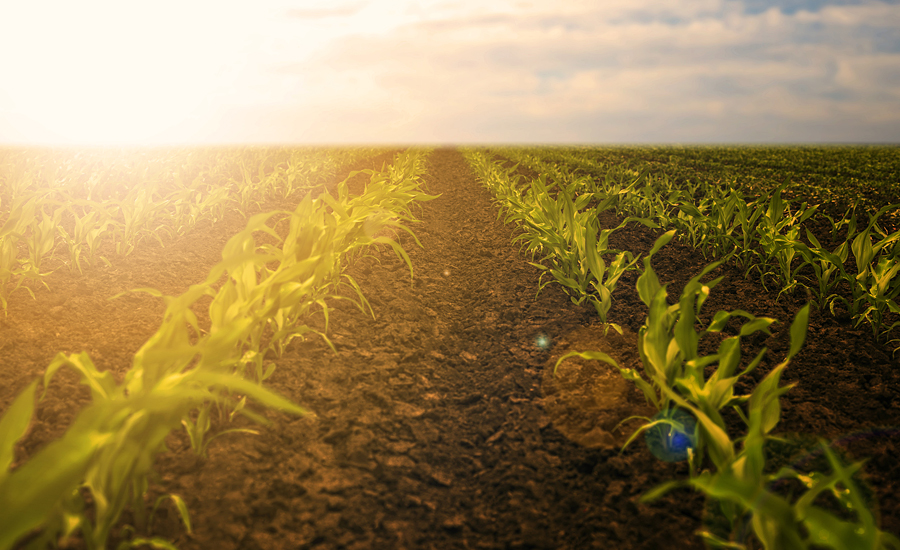Walmart, Bentonville, Ark., released a summary of its 11th annual Global Responsibility Report, highlighting the company’s progress and accomplishments in fiscal year 2018 to increase economic opportunity, enhance sustainability of supply chains and strengthen local communities.
“At Walmart, we believe strengthening societal systems is not only the responsible thing to do, it also maximizes business value,” says Kathleen McLaughlin, chief sustainability officer and president of the Walmart Foundation. “Through our initiatives, we hope to accelerate progress and spark collective action on the issues that matter most to our customers, business and communities – helping to transform retail and retail supply chains for economic, environmental and social sustainability.”
Walmart has made significant progress toward ambitious goals set more than a decade ago, including to be powered by 100% renewable energy, create zero waste and sell products that sustain people and the environment. The summary highlights a number of initiatives, including significant investments in higher wages, training and increased parental leave for eligible associates; a collaborative initiative with suppliers across the value chain to reduce 1 billion metric tons, or one gigaton, of emissions by 2030 known as Project Gigaton; and further collaborations with suppliers, non-profit organizations and others to help combat forced labor in the global supply chain.
Increasing economic opportunity in retail and retail supply chains
- Advancing economic mobility. Walmart promoted more than 230,000 people to jobs of greater responsibility and higher pay in the United States in FY2018 with bonuses for hourly U.S. associates totaling more than $625 million.
- Fostering inclusion. As of Jan. 31, women make up more than 30% of Walmart’s company officers and 55% of its total U.S. workforce. People of color make up 37% of U.S. management promotions and 44% of the company’s U.S. workforce.
- Supporting retail opportunity across the sector. Through the end of FY2018, Walmart and the Walmart Foundation have invested more than $80 million of their $100 million Retail Opportunity Initiative in grants to programs aimed at making it easier for frontline workers advance their careers in retail or adjacent sectors.
- Growing a local and inclusive supply base. Walmart and the Walmart Foundation funded the training of more than 1 million small-and-medium-scale farmers, of whom more than half are women.
Enhancing the sustainability of operations and value chains
- Increasing renewable energy portfolio. Walmart set a goal to be powered by 50% renewable sources by 2025, and achieved an estimated 28%, putting Walmart on track to reach the goal.
- Reducing emissions in the supply chain. Launched in 2017, Project Gigaton strives to reduce emissions from the collective value chain – Walmart’s supply chain and the supply chain of its suppliers -- by a total of one gigaton by 2030. To date, more than 400 suppliers have signed on, and within the first year of reporting, more than 200 of these suppliers reported emissions reductions that totaled over 20 million metric tons.
- Working to zero waste. By the end of FY2018, 78% of Walmart’s global waste was diverted from landfill.
- Enhancing the environmental sustainability of key commodities. By 2025, all Walmart U.S., Sam’s Club, ASDA, Walmart Canada, Walmart Brazil, Walmart Mexico and Walmart Central America fresh and frozen, farmed and wild seafood suppliers will source from fisheries who are third-party certified as sustainable, actively working toward certification or engaged in Fishery Improvement Projects. Last year, Walmart U.S. and Sam’s Club achieved the goal of 100% certified for its wild-caught fish, and 98% through farmed fish, with the final 2% having plans in place to obtain certification.
Strengthening local communities
- Providing disaster relief. Since FY2017, Walmart and the Walmart Foundation have provided more than $44 million in funding to support disaster response and preparedness around the world, which includes funding for the hurricanes that hit the continental United States and Puerto Rico in 2017.
- Relieving hunger. Since FY2015, Walmart has donated over 2.5 billion pounds of food from Walmart Stores, Sam’s Club locations and distribution centers in the United States, including more than 675 million pounds of food in FY2018.
- Engaging associates and communities. In FY2018, Walmart associates volunteered more than 850,000 hours in the United States, and the company’s U.S. stores and clubs provided more than $42 million in local grants.
- Supporting veterans. Since Memorial Day 2013, Walmart has hired more than 194,000 U.S. veterans and promoted more than 28,000 veterans to roles of greater responsibility.



